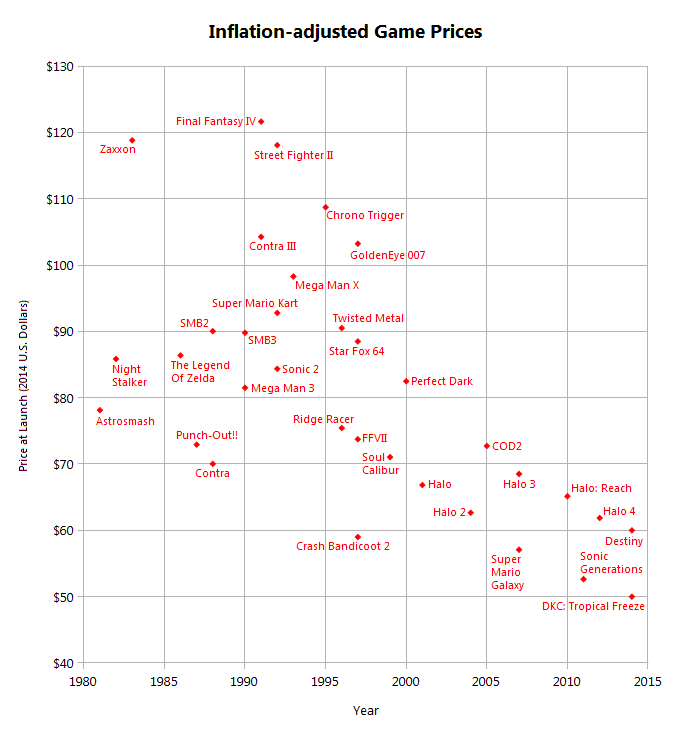I feel that videogame companies, should price games properly, and if they do not, we as customers should demand better and not buy those games. There are very few companies who are giving us way more than other companies for $59.99, while some take advantage and give us lowest amount of content for $59.99. I remember when the first TitanFall come out and people really argue back with me saying the price justify the content, when you paying 60 for way less content than what Call of Duty was giving, which not only gave more maps at the time, but also had a story mode, while the first Titanfall did not have a story mode, and had less maps, but still charge $59.99.......I said at that time, the game should of been $24.99 to $29.99 the most. People on every gaming website who only have a sony or xbox system, just like to get taken advantage of, as long as it have graphics they do not mind companies ripping them off, when you suppose to buy a game for gameplay. If graphics so important, just watch more Pixar films.
Here is a game that have a ton of content, but only real fans of basketball would know, not the casual, or the game reviewers who review basketball games, but do not care for it. I bet they only play 30 minutes, look at the different modes and then write a review. I know because if you NBA 2K fan you would know badges are more important in the games, they help your defense, and shots go in more, but those people who was horrible at the game, assume its because their levels were lower and in order to get good you have to pay to level up. In the game you cannot pay for badges, only can pay to level up to 85 or 86, and then complain why their shots not going in. In the park it was me and two other guys level 67, 68, and 69 and we beat 3 people with level 85 rating, when you check their profile, they had zero badges, so we already knew they paid to get the level they have.
Back to the topic......NBA 2K have 5 modes........1) regular mode where you can play against computer in just a regular match, or play online, 2) My career,...3) My Gm, 4)My Team 5) My League aka also known as season mode in other basketball games
my career - story mode of making it in the nba
my gm - you the owner of a team, you control prices, where the team located, you control trades and etc, the team success is in your hands
my league - season mode where you can play the full season of any team you like just like you did in all of the older basketball games
my team - some card game
In the past when people buy a basketball game in 90s and early 2000s, every game came with my league aka season mode to play through a full season like you team did on TV..........and we would pay $59.99 for this game
in 2017.....for $59.99 we get everything that we get in NBA 2k18 that i listed above......thats a whole lot of content for 59.99, story mode alone is over 200 hours of gameplay just to beat main parts.......to fully complete everything needed to be able to retire in HALL of Fame takes close to 300 hours or more...........my gm .....another mode that takes over hundreds of hours...........and we still get the regular season mode that all past basketball games get....
in my opinion, if they wanted, story mode alone can be worth 59.99 it takes just as much hours as any other RPG, and all the money you get is same as experience points in RPG games, so you use the money to get new clothes, just like you would buy new armor in a RPG, and same money can be use to level you up......while playing many matches would build up your badges which is similar to grinding in a rpg game
I personally do not know any other game that gives this much content for 59.99,
but this is how games should be sold



























































